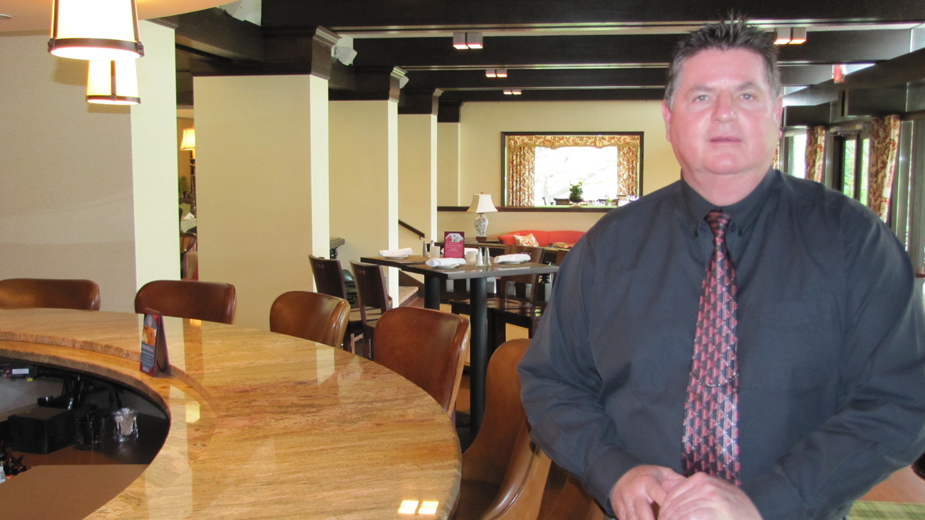Trumbull Country Club Adapts to Times
WARREN, Ohio – When Trumbull Country Club in Warren introduced its new director of club operations last autumn, a few other changes came along as well. Assessment costs: eliminated. Initiation fees: waived. Greens and cart fees: gone.
Those changes were necessary to keep the private club competitive in a rapidly changing market, says Joe Folk, who took the position in December.
“What we have to do is concentrate on what the club can be instead of what it used to be,” he says. “And we have to create our business model to make that work.”
Many country clubs across the country are switching to a private-public model where the course is open to the paying public but members receive extra benefits such as discounted rates, access to fitness centers and invitations to social events. But that type of change will not come to Trumbull Country Club any time soon, Folk says.
Even in an industry that is changing, there is still a place for members-only golf clubs, he believes. By limiting membership, the director continues, the staff can better tend to members’ wants and needs.
“We don’t want to be the biggest country club in the area. We don’t want to lose that intimate feeling,” he says. “We want to know our members’ names and what their drinks are. If you grow too big, then the course gets too crowded and you might as well be at a public course.”
And while country clubs of yore are often seen as the meeting places of social elites – lawyers, doctors, politicians and the like – the Trumbull Country Club over the years has adjusted to the markets and worked to get more Average Joes involved. Scott Foertch, the club’s sales, membership and event manager, says that effecting those changes are what has sustained the club.
“We’ve brought it down to the working family so working families can come in and still be a part of the club and pass it on to the next generation,” he says. “Over the years, we wanted to make sure we didn’t lose the club because of the challenges. So we restructured many times to make it more affordable.”
Part of the appeal, beyond the condition of the golf course and social events, is the history of the club, Foertch says. Although the club celebrated its centennial in 2015, the origins of Trumbull Country Club can be traced to 1898 and a course on Bonnie Brae Avenue.
After the property was sold in 1915, it moved to its current spot and, with construction of the clubhouse, became the Trumbull Country Club. Parts of the building are original, although much was rebuilt after a fire in 1933 and another major renovation was completed a few years ago.
The most recent addition to Trumbull Country Club is its fitness center, Vibe, which led to the introduction of a new level of membership for those looking for a place to work out but not partake in social events. The second level of membership includes access to the gym plus use of the dining room, tennis courts (and tennis lessons), outdoor swimming and invitation to social events.
The top-tier includes use of the golf course. Prices range from $495 per year for the Vibe membership to $295 per month for the golf membership. To further open the pool of applicants, no sponsors are required for application and since Folk started in December, he says no applicants have been denied to his knowledge.
“Over the years, we’ve run pretty close to 50-50. We’re half golf and half for social memberships,” Foertch says. “It’s a small community, but it’s a well-known and established club.”
Membership stands around 280, Folk says, and he has designs on seeing that number grown by 50 to 100. To do that, Trumbull Country Club needs to focus on what it does best: service. Club staff is there to say, “Yes,” Folk says, rather than, “Let me check.” That extends to everything from the menu to tee times, which members don’t have to schedule.
“You can play as fast as you want because there aren’t tee times every eight minutes like a public course. If you want to play five holes and stop, you can play five holes and stop,” Folk says. “You can play one hole and call it a day if you wanted to.”
On the menu are established items such as crab cakes, French dip sandwiches, chicken cacciatore and a burrata salad. But members are by no means limited in what they can order.
“It’s one of my favorite things,” says clubhouse manager Esther Reed of creating new items. “I have a close place in my heart to all aspects of fine dining and the chefs here love to get requests for new items. We like the challenge of having a new order.”
To further entertain members are monthly get-togethers such as the September clambake, annual Christmas party and the Fourth of July celebration with a private fireworks show. For the latter, attendance ranges into the 600s as members bring family and friends with them. Some members, Foertch adds, have started their groups to play bridge and mahjong.
“There are the golfers hanging out on the patio. The pool is open for parents and children to hang out. The tennis courts are filled and the dining area is as well. We have a great bar that people hang out at,” Reed picks up. “It is the place to be.”
These events, too, play a role in keeping members happy and the club up and running. Without members showing up to use the dining room or pool or tennis courts, it becomes harder and harder to allocate money toward those areas, Folk says.
“My biggest goal is to increase participation. When you increase participation, then you can increase services,” he continues. “It comes down to the dollars and cents of wages and the people to keep it going.”
On the business side of the club, operations do come down to dollars and cents, but there is no reason to pass that burden onto members, Folk says. That’s what led to the removal of assessment fees where members were billed at the end of the fiscal year to cover operating deficits.
“If you’re getting assessed an extra 10 grand a year, that’s what made a lot of clubs go away,” the director says. “We tried to make our membership more appealing and part of that was to make it so it doesn’t feel like we’re nickel-and-diming. … We wanted to make it so you can budget your money and have one budget that gets you all you wanted with no hidden fees.”
Pictured: Joe Folk, the new director of club operations at Trumbull Country Club.
Copyright 2024 The Business Journal, Youngstown, Ohio.



